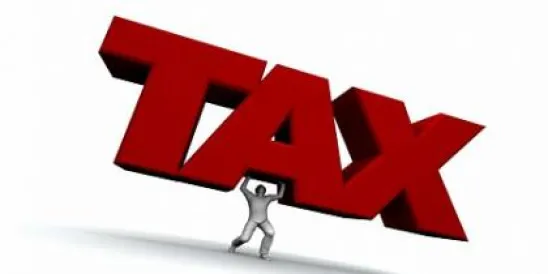The battle for future tax reform ignited even before the close of the 113th Congress.
In the waning hours of the congressional session on December 11, outgoing House Ways & Means Committee Chairman Dave Camp (R-Mich.) unveiled H.R. 1, the sweeping corporate tax reform legislation that he and his staff had spent several years laboring over. The retiring Camp knew there was no prospect that his bill would be considered but he did not want to leave the nation’s capital without a bill that would spur further action on this critical issue in the 114th Congress. The role of leading the Ways & Means Committee, which has legislative jurisdiction over all tax issues, will fall to Rep. Paul Ryan (R-Wis.) when the House reconvenes. Ryan, who was Gov. Mitt Romney’s running mate during the 2012 presidential campaign, has made no secret of the fact that he supports tax reform, but he has yet to lay out a vision for how to make it happen.
That same day in the Senate, two key tax-related events occurred: Sen. Orrin Hatch (R-Utah), the incoming chairman of the Finance Committee, released a report prepared by the panel’s Republican staff entitled “Comprehensive Tax Reform for 2015 and Beyond.” The report provides an historical background to the development of the modern U.S. federal tax system and examines various options for reform. Unlike the House bill, which was directed at corporate tax reform, the Hatch report focuses on both individual and corporate tax systems. The report does not recommend particular reforms, except for a few, such as replacing the current worldwide corporate tax system with a territorial system. Instead of proposing reforms, the report is clearly designed to lay out options. Following the introduction of the bills by Camp and outgoing Senate Finance Committee Chairman Ron Wyden (D-Ore.) and the tax reform principles outlined by former Senate Finance Committee Chairman Max Baucus (D-Mont.), the Hatch report is fast becoming an important touchstone for the possible future course of reform.
While Sen. Hatch was releasing his report, Sen. Ben Cardin (D-Md.), a member of the Finance Committee, introduced the Progressive Consumption Tax Act. His bill would establish a value-added tax and use the revenue to offset federal income tax liabilities in a progressive manner. Sen. Cardin pointed out that every other country in the OECD Organization for Economic Co-operation and Development relies in part on a value-added tax. Under his legislation, the United States would be brought in line with other advanced economies. But there is already certain opposition to Cardin’s bill. The Camp bill does not include a value-added tax and the Hatch report actively attacks the concept of a value-added tax, labeling it difficult, cumbersome, and regressive. However, Hatch acknowledged it would be part of the debate.
This spate of activity in the closing days of Congress, as the Republicans prepare to take over the Senate, shows that tax reform remains a very active part of the debate in Washington. Given the politics at play with a Republican controlled Congress and a Democratic administration, it is easy to expect that tax reform will go nowhere.
But the flurry of bills indicates that there will be a strong push by both parties to overhaul the nation’s antiquated tax structure. Even if no law ultimately passes, companies and individuals with a stake in the debate will need to engage throughout the process. Decisions must get made and an eventual bill will take shape. Once certain decisions are made, getting them changed is a challenge because you need offsetting revenue. As they say, he who snoozes loses. Nowhere is that truism more accurate than during the development of tax legislation.





 />i
/>i
